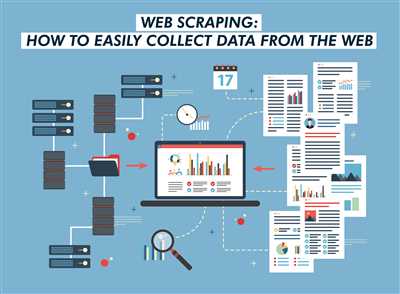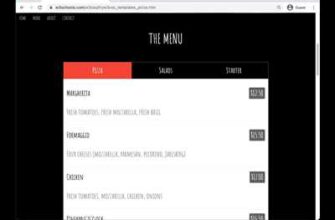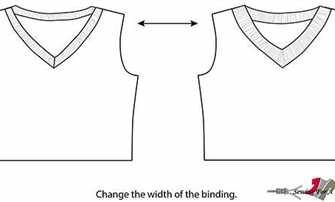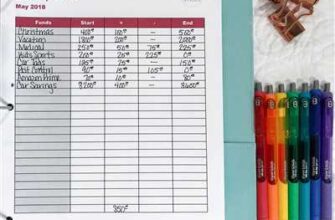
Web scraping has become a highly important and effective tool in today’s wide range of industries. Companies are always on the lookout for ways to stay competitive in the market and make informed decisions. By using web scrapers, they can extract data from various sources such as websites, platforms, and APIs, allowing them to gather valuable information about their customers, competitors, and market opportunities.
So, how can you make a web scraper yourself? The answer is Python. Python is a powerful programming language that offers a wide range of libraries and tools for web scraping. It provides a simple and easy-to-use interface, making the process of scraping websites much more efficient. With Python, you’ll be able to write code that can navigate through web pages, click on links, and extract data from HTML elements.
One of the most important steps in creating a web scraper is to research the website you want to scrape. Understanding the structure of the website, the location of the data you need, and any potential obstacles or restrictions is crucial. You’ll also need to familiarize yourself with the website’s terms of service and make sure that scraping is allowed.
Once you have done your research, you can start building your web scraper. There are many ways to approach this task, but one popular method is to use a library like BeautifulSoup or Scrapy. These libraries provide a set of tools and functions that make it easy to parse HTML and extract the desired information.
After you have created your web scraper, you can use it to automate tasks such as monitoring prices, gathering data for research, or scraping job postings. The possibilities are endless. With a well-developed and maintained web scraper, you can save time and money by automating repetitive tasks and staying informed about the latest deals, products, and opportunities in your industry.
How to Make a Web Scraper With Python
Web scraping is becoming increasingly popular in today’s wide market, as businesses are always looking for ways to stay informed about their competitors, monitor pricing and deals, and research new opportunities. With the help of web scraping, you can gather data from various websites and use it for market research, answering important business questions, or even building your own platform.
Python is a highly recommended programming language for building web scrapers. It offers a wide range of libraries and tools that simplify the scraping process and make it easier to extract data from websites. In this article, we will guide you through the steps of creating a web scraper with Python.
First, you need to have a clear understanding of what data you want to scrape and the specific websites or sources you want to scrape data from. This will help you identify the necessary tools and libraries to use for your scraper.
Next, you’ll have to install the required Python libraries, such as BeautifulSoup and Requests, which are widely used for web scraping. These libraries provide a convenient interface for interacting with websites, making HTTP requests, and extracting data from HTML documents.
Once you have the necessary libraries installed, you can start writing your scraper. Begin by making an HTTP request to the desired website using the Requests library. Then, retrieve the HTML content of the page and parse it using BeautifulSoup.
From there, you can traverse the HTML tree structure and extract the data you need. This may involve finding and selecting specific HTML elements, such as tables or divs, and extracting the text or attributes from those elements.
Once you have extracted the desired data, you can process it further as needed. This might involve cleaning the data, transforming it into a more usable format, or storing it in a database or CSV file.
It’s important to note that while web scraping can be a powerful tool, it’s also important to use it responsibly and ethically. Always respect the website’s terms of service and any applicable laws or regulations. Additionally, be mindful of the website’s server load and avoid putting too much strain on their resources.
In conclusion, web scraping with Python offers a wide range of opportunities for businesses and individuals alike. Whether you’re looking to gather data on market trends, monitor competitors, or scrape product details for your e-commerce site, web scraping can help you gain a competitive edge. With the right tools and techniques, you’ll be well-equipped to extract data from websites and make informed decisions for your business or career.
Point and click interface
Web scraping is a highly effective and competitive way for businesses to research and monitor online platforms, answer important business questions, and find opportunities to sell products or services. With a wide range of websites and sources available, companies can use web scraping to gather data from across the internet and stay informed about their industry.
One of the ways to make web scraping more accessible and user-friendly is by using a point and click interface. This type of interface eliminates the need for manual coding and allows users to interact with the web scraper by clicking on various elements of a website. Instead of writing complex Python scripts or dealing with the technical aspects of scraping, users can simply point and click to select the data they want to scrape.
Point and click interfaces are designed to make the scraping process easier and more intuitive for users, even those without programming experience. By providing a visual representation of the website, users can easily navigate and select the specific data they need. They can click on different elements such as text, images, links, or tables and instruct the scraper to extract that information.
This type of interface is particularly helpful for those who are new to web scraping or want a quick and efficient way to gather data. It saves time and effort by automating the scraping process and eliminating the need for manual coding. Users can stay focused on their core business tasks instead of spending hours writing and debugging scraping scripts.
Furthermore, a point and click interface enables users to monitor websites or marketplaces regularly. They can set up the scraper to run periodically and extract data on a scheduled basis. For example, if you’re in the real estate business, you can create a web scraper to monitor Zillow or other listing platforms for new deals and properties. The scraper can run daily or weekly and provide you with a full and up-to-date view of the market, helping you make informed decisions.
In conclusion, a point and click interface makes web scraping accessible to a wider range of users and eases the overall scraping process. It helps businesses save time, money, and effort, while also enabling them to gather valuable data from various online platforms. Whether you’re a seasoned web scraper or just starting your career, a point and click interface can be a valuable tool in your web scraping toolkit.
9 ways to make money with web scraping
Web scraping is an effective way to gather data from websites, and it can also be a valuable tool for making money. By utilizing web scraping techniques, you can create a profitable business or find new opportunities to generate income. Here are 9 ways to make money with web scraping:
| 1. Provide scraping as a service | If you have experience in web scraping, you can offer your skills and services to customers who need data from websites. Many companies are willing to pay for scraping services, as it can save them time and resources in the research process. |
|---|---|
| 2. Sell scraped data | Once you have collected valuable data using your web scraper, you can sell it to companies or individuals who are interested in that information. By providing valuable and up-to-date data, you can build a loyal customer base and generate a steady stream of income. |
| 3. Create a product or platform | Use the data you gather from web scraping to create a product or platform that solves a specific problem or addresses a market need. By offering a user-friendly interface and a wide range of features, you can attract customers and generate revenue from your product. |
| 4. Answering questions or monitoring websites | Some customers may need real-time information or answers to specific questions about certain websites. By using web scraping to monitor those websites and provide instant updates or answers, you can offer a valuable service and charge a fee for your expertise. |
| 5. Help companies stay competitive | By providing companies with data and insights obtained through web scraping, you can help them stay competitive in the market. Companies can use this data to make informed decisions, identify market trends, and optimize their strategies, making your web scraping services highly valuable. |
| 6. Find deals and opportunities | Web scraping can help you find the best deals, discounts, or opportunities across a wide range of platforms. By collecting and analyzing data from various websites, you can identify lucrative deals and ensure you never miss out on a profitable opportunity. |
| 7. Make money through affiliate marketing | With web scraping, you can gather data from websites that offer affiliate programs. By analyzing this data, you can identify high-converting products or services and then promote them through your affiliate links. This can lead to commissions and additional income. |
| 8. Offer data-driven insights | Use the data you collect through web scraping to offer data-driven insights and reports to businesses or individuals. By analyzing and interpreting the data, you can provide valuable information that can guide decision-making processes and help your clients achieve better results. |
| 9. Create a price comparison website | Utilize web scraping to collect and compare prices from various websites across different markets. By creating a user-friendly price comparison website, you can attract customers who are looking for the best deals and earn money through commissions or advertising on your platform. |
In conclusion, web scraping offers numerous opportunities to make money. Whether you provide scraping as a service, sell scraped data, or create your own products or platforms, there are plenty of ways to monetize your web scraping skills. Just remember to always operate within legal and ethical boundaries, and you can build a successful career in the web scraping industry.
Question answering over a website

When using a web scraper, you’ll come across various ways it can help you with your research. One important service a web scraper can provide is question answering over a website. Companies like Zillow, for example, have wide-ranging products and services that they offer to their customers. If you’re willing to invest in a good web scraper, you can use it to monitor competitors, find new business opportunities, and stay informed about the market.
With a question answering web scraper, you can make your website more interactive and effective. By providing a platform for customers to ask questions, you open up opportunities to sell your products or services. By using a web scraper to monitor important websites, you can gather and answer customer questions in a timely and informed manner.
Python is a highly recommended language for building web scrapers. It is versatile and has a wide range of libraries that can help you navigate and extract data from websites. Python’s simplicity and readability make it an excellent choice for both beginners and experienced developers.
When using a question answering web scraper, you should always be careful to follow the terms of service and guidelines set by the websites you are scraping. This will not only keep you within legal boundaries but also ensure a positive and professional image for your business.
Question answering over a website can be a lucrative career opportunity as well. Many companies are willing to pay good money for skilled web scrapers who can provide them with valuable insights and information about their market. The ability to answer questions in real-time and provide up-to-date data sets you apart from competitors who may not have these capabilities.
Effective question answering web scrapers can help you sell more products, stay ahead of the competition, and make informed business decisions. By scraping important sources of information and answering customer queries promptly, you can establish yourself as a reliable and trustworthy resource in your industry.
In conclusion, question answering over a website is a powerful tool for businesses today. With the right web scraper and proper monitoring, you can gather important data, stay ahead of the curve, and provide excellent customer service. Don’t miss out on the opportunities that web scraping can offer you and your business.
Sources
When it comes to web scraping, there are a wide range of sources from which you can gather data. Whether you’re a beginner or an experienced Python developer, there are always new and interesting ways to utilize this highly effective tool. From monitoring competitive websites to answering customer inquiries, web scraping can help you stay informed and make informed business decisions.
Some of the most important sources for web scraping include:
- Open APIs: Many websites and platforms have open APIs that allow developers to access and retrieve data in a structured manner. These APIs can provide a wealth of opportunities for data scraping.
- Competitive Research: By scraping data from your competitors’ websites, you can gain valuable insights into their products, pricing, and marketing strategies. This can help you stay ahead of the market and sell your own products more effectively.
- Market Research: Web scraping can also be used to gather data on market trends, consumer preferences, and industry news. This information can help you make more informed decisions and identify new business opportunities.
- Real Estate Data: Websites like Zillow and Redfin offer a wealth of real estate data that can be scraped and analyzed. This data can help investors and real estate professionals make better decisions and identify valuable properties.
- Customer Service: Web scraping can also be used to automate customer service processes by gathering data from customer inquiries and providing relevant answers. This can save time and improve customer satisfaction.
These are just a few examples of the wide range of sources you can leverage for web scraping. The key is to find the sources that are most relevant to your particular needs and goals. By developing a highly effective web scraper, you’ll be able to gather data from these sources and use it to grow your business, advance your career, or simply make more informed decisions.










